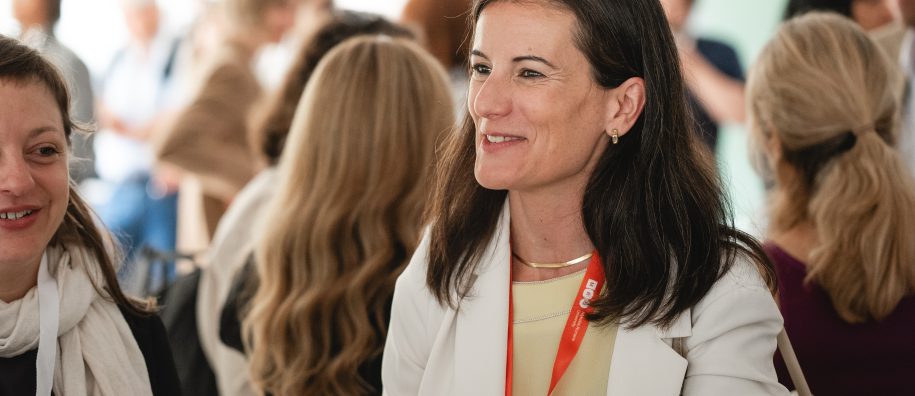
The fourth ERUA Annual Summit 2024 is dedicated to exploring the crucial role of social innovation in addressing global transformation and sustainability crises. This event gathered prominent thought leaders, academics, policymakers, and innovators, all committed to examining the urgent need for social innovation in overcoming modern challenges.
The two-day conference spotlighted the role of universities in creating a resilient and adaptive society, acknowledging that higher education institutions serve as both knowledge hubs and key drivers of societal change. It is essential to investigate the synergy between education and research, underscoring their combined impact as catalysts for social innovation.
It's in this context that we speak to Mrs. Bruna Vives (B.V.), Secretary General of the European Reform University Alliance (ERUA), whose insights will no doubt help outside readers gain a deeper understanding of the ERUA's main aims and aspirations.
2024 ERUA Summit
Besides the previously stated objectives of the Summit, how would you evaluate this significant gathering of all eight Alliance members?
B.V. This Summit represents a significant milestone in the journey of our European Alliance as it is the first summit of the renewed alliance with eight partner universities. The summit on social innovations provides an enriching platform for open dialogue, innovative thinking, and forging partnerships that address global social challenges and drive our Alliance forward. At the same time, the gathering of Rectors from the eight partner universities will set us up for the journey ahead of us by aligning our strategy and forging long-lasting relationships that are so important for success.
What are the primary tasks that the universities will bring back to their home countries, and what assignments will they need to complete?
B.V. All universities will have their share of assignments. A crucial role will play the building of a research community through research-based clusters. This community will create a sense of belonging among senior, early-career researchers and students, leading to lasting benefits for the Alliance and encouraging more collaboration leading to joint projects. The involvement of various disciplines and universities will ensure lasting collaborations, drive societal impact, and deepen our understanding in five thematic areas. The focus of our universities will be creating awareness and momentum on local level and thus bringing our different research-based clusters to life. At the same time, the ERUA teams at the partner universities will review our alliance activities and return home with new ideas and future plans, and a renewed sense of energy and community.
International Collaboration
What are the significant challenges in advancing international partnerships in higher education?
B.V. Diversity is or strength but also our weakness. The challenges and benefits of working in a diverse environment and creating partnerships are two sides of the same coin. Different languages, cultures, national frameworks, organizational setups and environments need to be managed towards a common goal, and that can be cumbersome at times. At the same time it can be very rewarding because of the richness of the diversity. I personally like the African proverb: “If you want to go fast, go alone. If you want to go far, go together”.
Success Stories
Can you envision success stories resulting from ERUA's initiatives?
B.V. ERUA's initiatives aim to create success stories that highlight the positive impact of our collaboration. On an alliance level we foresee collaborative research projects, joint programmes and an overall positive impact on European policy. The true difference will come on an individual level. All the experiences through the exchange of ideas, the diverse perspectives and mobility opportunities for students, staff and academics will have a long-lasting impact on the professional and personal lifes.
In what ways does ERUA evaluate the effectiveness of its reforms?
B.V. The evaluation will happen mainly on two levels. On the one hand with a comprehensive quality and impact assurance framework. We will systematically evaluate the impact of our initiatives and look for continuous improvement in the way we work. On the other hand, we will be working with a very experienced Advisory Board composed of higher education leaders and policy makers. Their collective insights will be invaluable in providing advice on the direction of the alliance and potential growth areas.
Ongoing and Future Plans
What impact will the 2024 ERUA Summit have on the Alliance's future initiatives?
B.V. This summit is our first real get-together in the current setup of the alliance and the first time all Rectors meet in presence. On a grassroot level I expect a wide range of initial ideas for collaboration to take shape in the aftermath of this summit. These will be the seeds for future research and education activities. On a steering level we have the unique opportunity to align our strategic priorities and build the level of trust and commitment required to succeed.
Are there any plans to extend ERUA's membership to additional universities or regions?
B.V. ERUA does not intend to expand by adding new member universities for now. Instead, the focus is on implementing a robust partnership strategy and engaging with the current associated partners. We are always open to building or deepening partnerships within the existing networks of the partner universities as well as external entitities such as non-profit or governmental organizations.